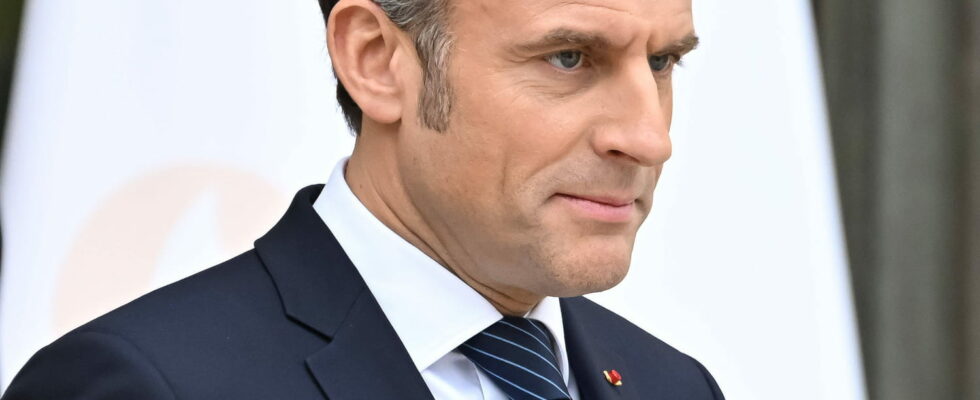Can Emmanuel Macron change the political situation with his resignation? While the governance crisis continues, with a fragile executive and constantly on borrowed time, the hypothesis cannot be ruled out.
“I think he can think about (his departure), think about it seriously, look at the situation he has placed the country in,” MP François Ruffin said on France Info on November 21. “Like an immense majority of French people, I would be delighted if Emmanuel Macron resigned. It is one of the possible outcomes,” said the vice-president of the National Rally on the 24th. The little music of the departure of the head of the State – to resolve the current political crisis – is making itself heard with unprecedented vigor in recent days.
It must be said that the 2025 budget, which must be adopted before the end of the year, does not satisfy the deputies. The majority of them, via the presidents or spokespersons of their group, indicated that they would not vote for it. Michel Barnier will therefore have to hold his government accountable by relying on article 49.3 of the Constitution, to have the finance laws adopted without a vote in Parliament. Which means that the opposition will have the opportunity, most likely in mid-December, to vote on a motion of censure. The NFP deputies and the RN deputies are ready to bring down the Prime Minister and his team, relaunching the soap opera of instability, with a new power vacuum in Matignon.
Since this scenario has taken shape with increasing precision, it has been lucidly commented on by the opposition. “We are completely responsible people, we know the consequences that censorship would have,” warned the vice-president of the party Sébastien Chenu on LCI on November 24, adding that Emmanuel Macron would therefore have control once Michel Barnier ruled out, with four possibilities according to him: “reappoint the same Prime Minister, reappoint a new Prime Minister, trigger a referendum, resign if there is no other solution”. Same analysis for the RN deputy for Oise Philippe Ballard: Emmanuel Macron “could take his responsibilities. It could be one of the exit doors”.
A presidential election in 2025?
But can the resignation of the head of state really open a new chapter? We must first keep in mind that nothing obliges him to end his mandate before May 2027. He has even made it known several times that he would not resign, considering himself a guarantor of the stability of the institutions. The head of state also believes that while Europe faces the war in Ukraine and increasingly intense international threats, France’s voice could be weakened if the presidency of the Republic is dismissed. .
But what can we do then, to break the deadlock, if the deputies no longer want the current government, which Emmanuel Macron took months to put in place?
Since the elected representatives of the Assembly cannot be removed until the end of June at least, the president must propose a solution that suits them: a new apolitical, technical government, but which will give guarantees to enough elected officials. Marine Le Pen and her group could be satisfied with a new Prime Minister who would promise them a reform establishing proportional representation in legislative elections and an Immigration law. The equation is complex, but not out of reach for the head of state.
If Emmanuel Macron changes his mind and decides to resign, then he will open a sequence that could provide clarity: the new elected president would have new legitimacy to choose the direction of the new government, and even the deputies will have to take this election into account to form a new coalition. Even if this scenario also promises headaches for the next executive, it would have the advantage of kicking the anthill and rebuilding group alliances in the Assembly.
If Emmanuel Macron resigns after the censorship of the government – which could occur at the end of December – it seems rather logical that he waits until the beginning of 2025. The President of the Senate would be responsible for the interim while awaiting the organization of a new presidential election. This must be organized “at least twenty days and at most fifty days after the opening of the vacancy or the declaration of the definitive nature of the impediment”. For example, if he resigns on January 20, on January 1er tour could take place no earlier than February 11. On the other hand, the 2e tour could not take place later than March 11.
